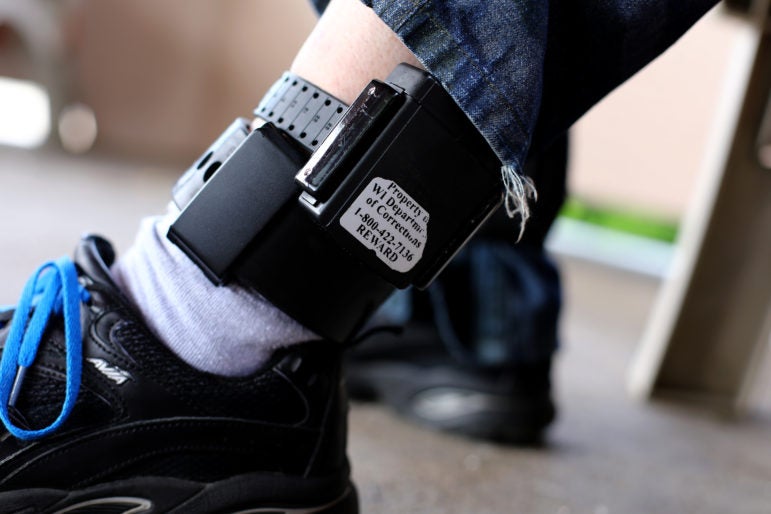Electronic monitoring incarcerates people who might otherwise be on probation — and makes them pay for it themselves
“If I had just done time, I would’ve been done by now.”— Patricia, under house arrest in Indiana
The “crime” Patricia, mother of five, committed was an odd one: She climbed through her best friend’s window to retrieve a bottle of her own medication. She and her friend had “open-door policies” and visited each other’s Indiana homes daily, including when the other wasn’t present — but her friend’s husband was not on friendly terms with Patricia, and one day he called the cops on her. Though all theft and drug charges were dropped (since the medication she took was her own), Patricia retained a low-level “felony burglary” charge — she’d entered a home without the permission of the leaseholder. Her caseworker and everyone involved expressed complete faith that she would never do this again. Nevertheless, the prosecutor pursued the felony burglary charge, which carries a minimum of 10 years in prison. Her lawyer advised her to plead guilty to a lesser offense for five years under house arrest and another five years of probation. When she took the plea, the public defender told her there was a good chance she would be free within six months, saying, “They’re going to realize you’re not a criminal.”
Three years later, Patricia remains under house arrest — trapped in her own home for a “crime” that harmed no one.
Patricia’s predicament may sound bizarre, but it is symptomatic of a growing trend. Today, by very conservative estimates, more than 130,000 people across the country are tethered by electronic monitoring (EM). EM for people accused or convicted of crimes grew about 140% between 2005 and 2015, as the practice rippled across the country.
However, EM doesn’t function only as prison’s replacement. It also widens the net of the criminal legal system, sweeping into its clutches people who otherwise might never be subject to state-sanctioned confinement. A study by the Pew Center on the States, a division of the Pew Charitable Trusts that focuses on state-level public policy analysis, pointed out that EM is now commonly used both as an “alternative” punishment and “as an adjunct to traditional community supervision practices.”


“Her lawyer advised her to plead guilty to a lesser offense for five years under house arrest and another five years of probation.” These lying and lazy lawyers, they are dine a dozen. I had one and he kill himself within the year.
Sounds like her friend’s husband needs a swift kick in the butt. So you aren’t on good terms with your spouse’s friend; doesn’t give you the right to call the cops.
Electric Monitoring is beyond stupid because if someone has intent to commit a crime a monitor, house arrest, probation, parole or registration won’t stop someone. Why not spend money on useful things for people, the community and society? The smell of government, judges/lawyers and law enforcement Explains the toxicity in the air today.